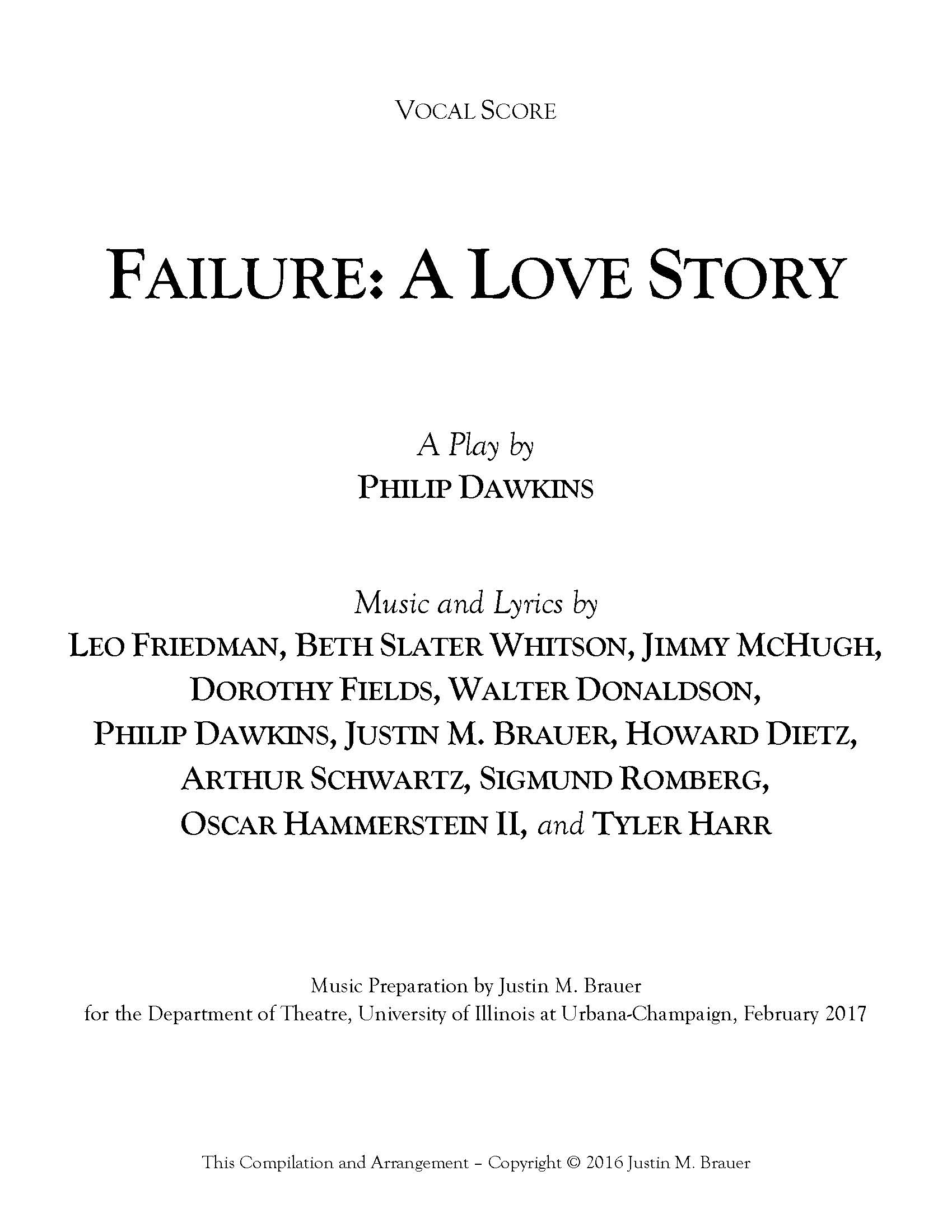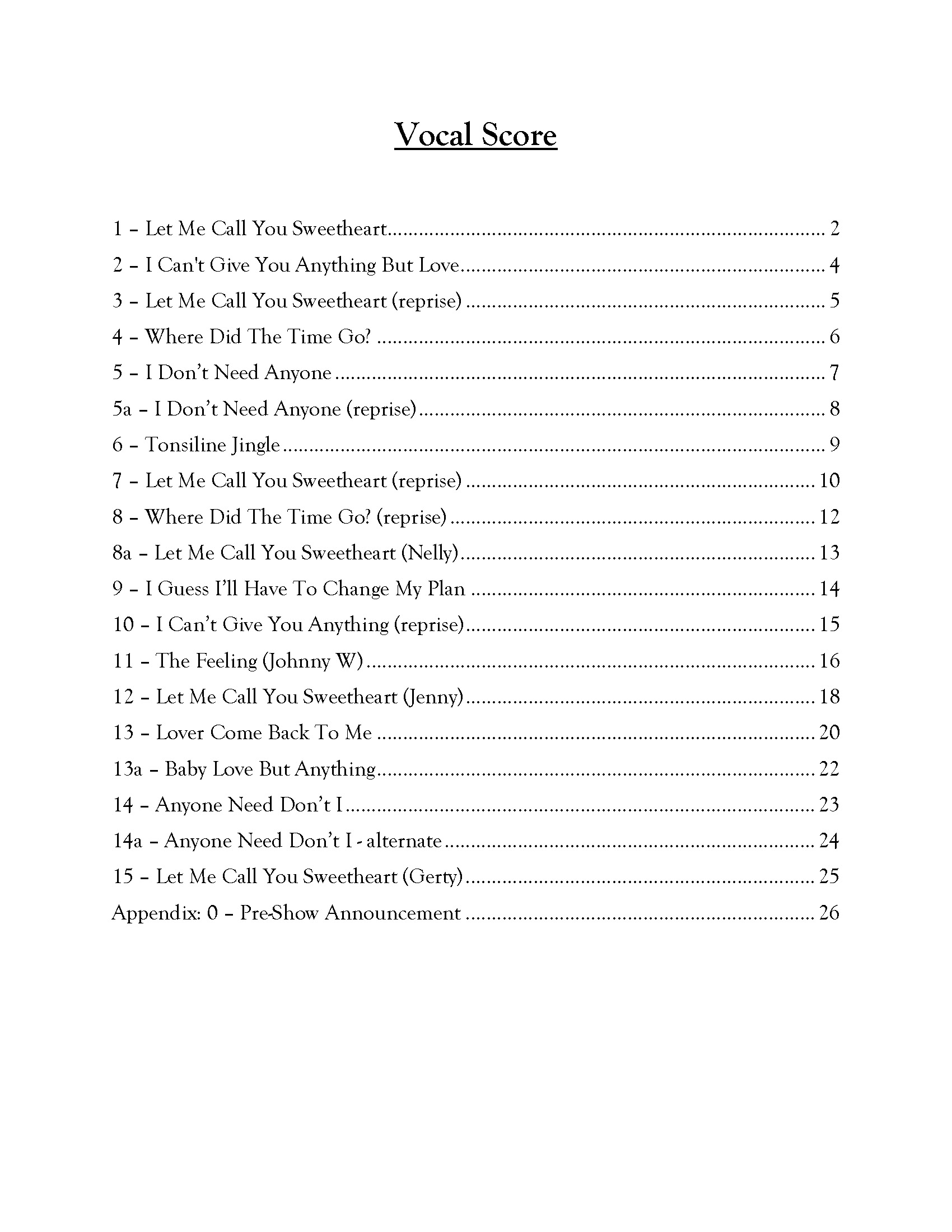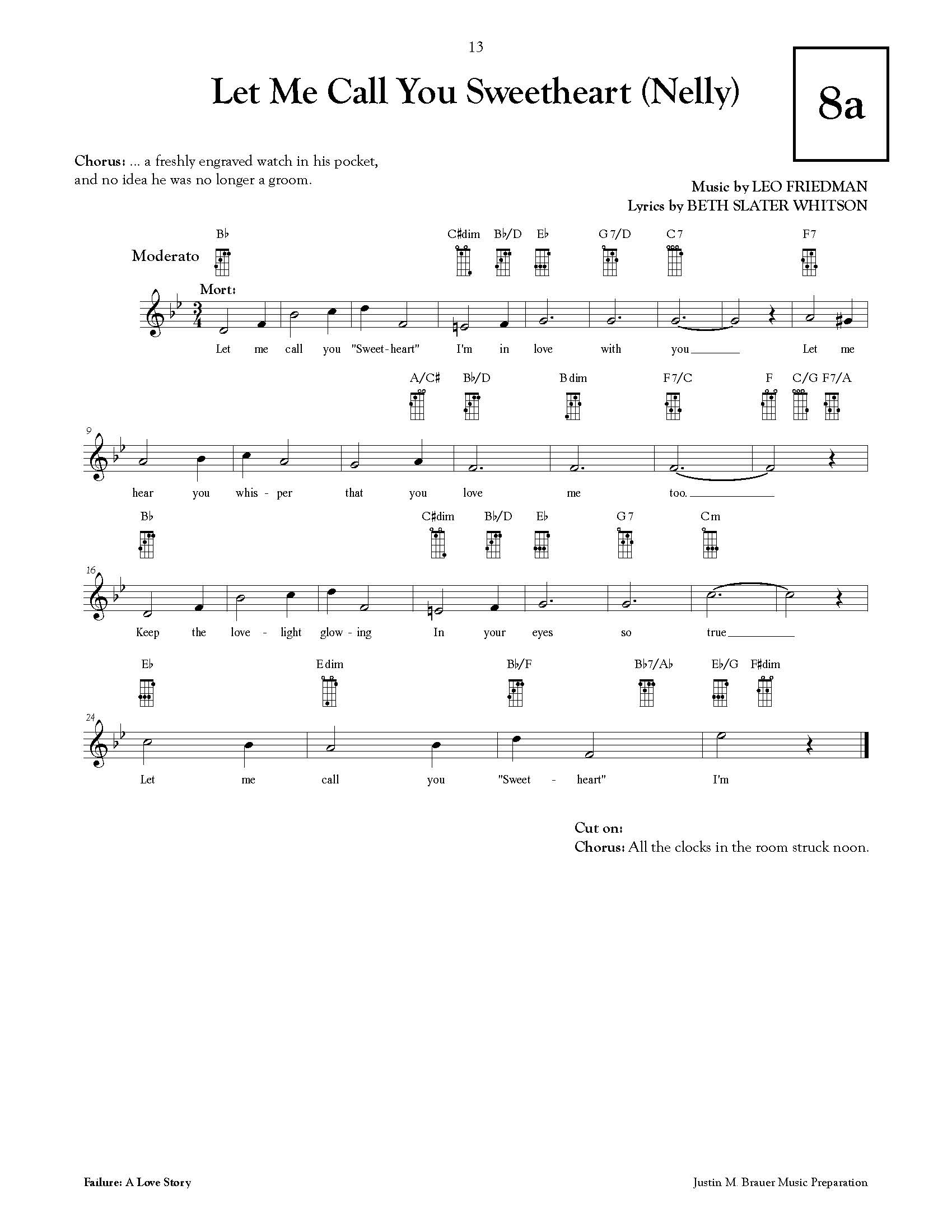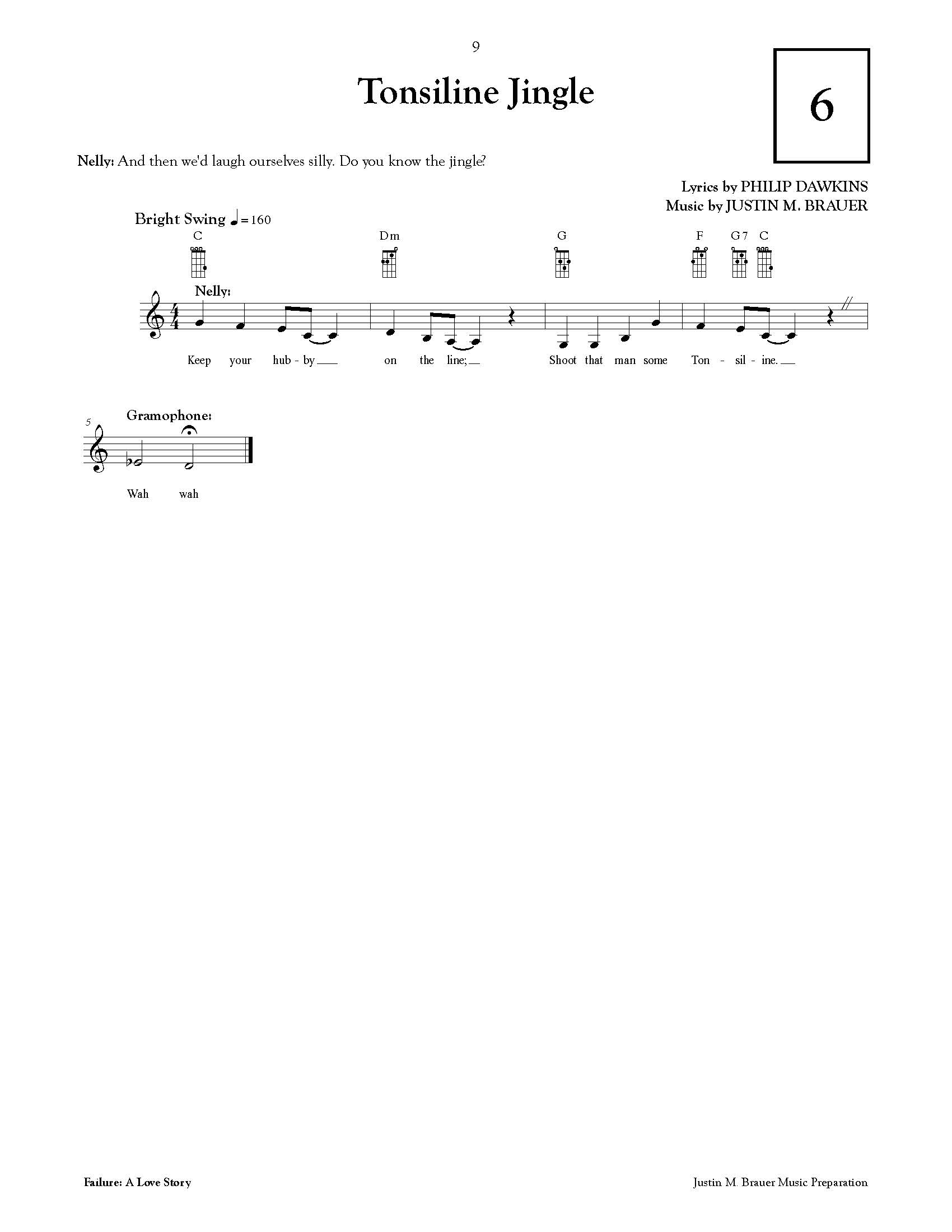Failure: A Love Story - Notes
This winter, I have served as Music Supervisor for Failure: A Love Story by Chicago playwright Philip Dawkins, produced by the University of Illinois at Urbana-Champaign Department of Theatre, and directed by JW Morrissette. In case some future music director comes searching for information on the score during their prep work, here goes:
Staging the Music
I came into the rehearsal process after the production had already been roughly blocked. I taught the music, then we went back to the staging and figured out who was available for each number to accompany the singers (sometimes, in the case of the full cast numbers, while singing.) We ended up with two guitars and two ukuleles at any given moment, played by five actors throughout the show (3 ensemble members, Gerty, and Mortimer).
This process sometimes involved slight restaging to include ideas we developed while working on the music, as well as reworking some music to fit the physical or emotional needs of a given moment. There were some moments, such as the trio between Mortimer Mortimer, John N, and the Gramophone, that ended up very different on stage than I had interpreted them on paper. JW, the actors, and I worked together to figure out how best to use the music to support those moments.
The Songs
The score that comes in the back of the script is two very hard to read (poorly copied/pixelated) original melodies by the playwright with no chords indicated and one set of lyrics with chords that is to the tune of "How 'Ya Gonna Keep 'Em Down On The Farm?" by Walter Donaldson, Sam M. Lewis, and Joe Young. The big production number, "The Feeling (Johnny W)" is in a lovely key (C) for actor-musicians to play in the beginning, and then moves to B - after this failed in our rehearsals, I put the second half in C.
The other original tune, "I Don't Need Anyone," is the most difficult tune of the show, melodically, and I struggled to harmonize it well to both be playable by our actors and support the actor playing the Gramophone. This tune is also presented backwards during a memory sequence, and I tried two versions of that- one in which only the lyrics were reversed and the music stayed the same, and one which is entirely in retrograde. The latter makes more sense to me, conceptually, but did not work in practice. It is too far removed from the original to be recognizable to the audience as the same song in reverse.
There is also one short jingle for Tonsiline throat gargle for which lyrics but no tune are provided. JW requested the preshow announcement be sung, and one of our undergraduate Theatre majors working on the show wrote a brief number for that purpose (and to introduce the audience to the type of show that it is.)
The pre-existing tunes called for are:
"Let Me Call You Sweetheart" by Leo Friedman and Beth Slater Wilson (this is a recurring theme in the show, and appears every time there is a death)
"I Can't Give You Anything But Love" by Jimmy McHugh and Dorothy Fields
"I Guess I'll Have To Change My Plan" by Howard Dietz and Arthur Schwartz
"Lover Come Back To Me" by Sigmund Romberg and Oscar Hammerstein II
Also, "A Note on Music" from Philip Dawkins, at the front of the script (abridged to leave out the titles already referenced):
"Some of the songs referenced in this play are in the public domain, some are original songs, and some require a license to be performed. If the rights cannot be secured for those songs requiring a license, you may use alternative songs with similar themes."
Creating the Score
Rather than hand the actors a cobbled together packet of commercially-available charts, Real Book lead sheets, and new arrangements, I created an all-new typeset score. I chose to include ukulele chord charts, rather than guitar, as our guitar playing actors were more experienced than those playing ukulele. While not every tune ended up being accompanied, I left the chords in every number, mostly for convenience' sake.
During rehearsals, the final "Let Me Call You Sweetheart" turned into a choral number, for which I wrote a new arrangement based on what the actors had developed on their own. Particularly important to me in that arrangement was choosing moments for the cast to come together in unison (the last "I'm in love," for instance,) and leaving the third out on the final chord. The moment, as JW has staged it, is very touching, and I wanted a very pure, haunting sound to accompany it.
This also gave me an opportunity to add to my bag of engraving tricks. Some fun/useful things I learned how to do because of this project were create/edit chord diagrams, add song number boxes, reposition noteheads individually per layer, and combine PDFs and add page numbers.
Failure: A Love Story runs February 2-12 at the Krannert Center for the Performing Arts. Tickets are available here.



